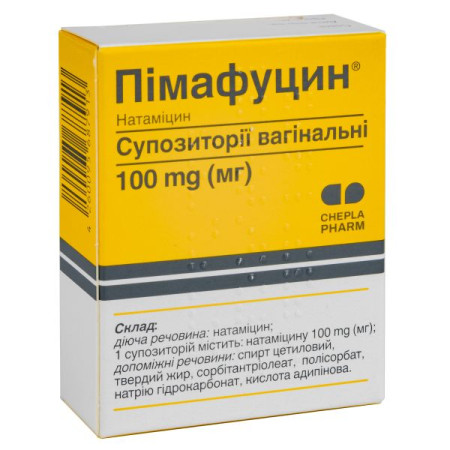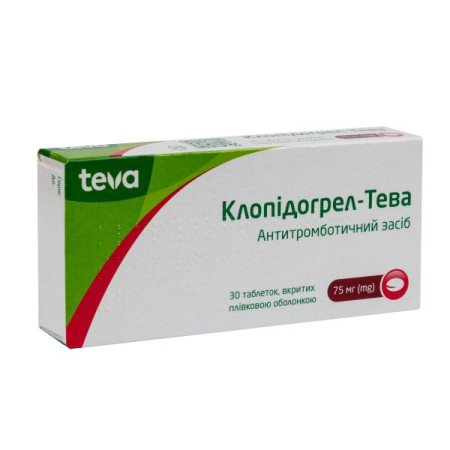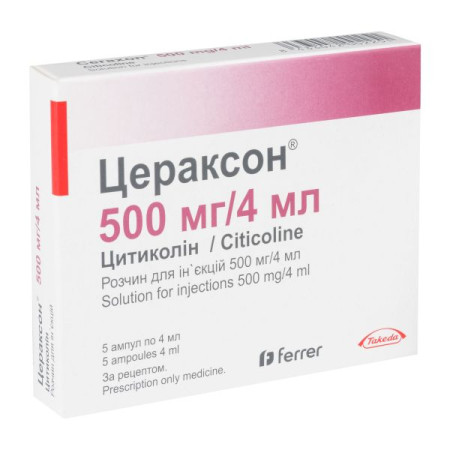Barium sulfate for fluoroscopy powder for suspension preparation 80 g

Instructions Barium sulfate for fluoroscopy powder for suspension preparation 80 g
Composition
active ingredient: barium sulfate;
1 container contains 80 g of barium sulfate.
1 package contains 80 g or 100 g of barium sulfate.
Dosage form
Powder for suspension preparation.
Main physicochemical properties: white or almost white powder, free from foreign particles, practically insoluble in water.
Pharmacotherapeutic group
Radiocontrast agents that do not contain iodine. ATX code V08B A02.
Pharmacological properties
Pharmacodynamics. Coats the mucous membrane of the digestive tract and provides a clear image of the microrelief of the mucous membrane during X-ray examinations of the digestive tract. Increases the contrast of the image during X-ray examinations of the digestive tract. The maximum contrast of the esophagus, stomach and duodenum is achieved immediately after oral administration, the small intestine - after 15-90 minutes (depending on the rate of gastric emptying and the viscosity of the drug). The greatest visualization of the distal part of the small and large intestine depends on the position of the body and hydrostatic pressure.
Pharmacokinetics. Has low toxicity. Is not absorbed in the gastrointestinal tract and does not enter the systemic circulation. Is completely excreted in feces after 24–28 hours.
Indication
X-ray examination of the pharynx, esophagus, stomach and intestines (including double contrast).
Contraindication
Hypersensitivity to the drug. Violation of the integrity of the walls of the gastrointestinal tract (suspected), esophagotracheal fistulas, swallowing disorders, complete or partial intestinal obstruction, constipation, esophageal stenosis, bleeding from the digestive tract, atresia, condition after surgical interventions on the digestive tract.
Do not use immediately before emergency surgery on the esophagus or gastrointestinal tract.
Malabsorption syndrome; recent trauma, chemical burns of the gastrointestinal tract, gastrointestinal ischemia, necrotizing enterocolitis; megacolon or toxic megacolon.
Food allergy.
Special safety precautions
Use only in a hospital setting.
Interaction with other medicinal products and other types of interactions
No interaction studies have been conducted. Barium sulfate is biologically inert and interactions with other drugs are unknown. However, the presence of barium sulfate in the gastrointestinal tract may alter the absorption of concomitantly administered drugs. To minimize any potential changes in absorption, barium sulfate should be administered separately from other drugs whenever possible.
Other studies of the same area of the gastrointestinal tract using other contrast agents may be complicated by the presence of barium sulfate residues in the gastrointestinal tract for up to several days after the examination.
Application features
The drug should be administered under the supervision of a physician.
Barium sulfate should not be administered dry, see the section "Method of administration and dosage" for the method of administration.
Increased sensitivity
A history of bronchial asthma, atopy, confirmed hay fever and eczema, a family history of allergy, or a previous reaction to contrast media requires increased attention.
Rapid recognition, assessment and diagnosis are crucial for effective management of hypersensitivity reactions. For this reason, qualified personnel should be available to diagnose and treat hypersensitivity reactions.
Perforation
In patients with significant stenosis at any level of the gastrointestinal tract, especially if it is distal to the stomach, and in the presence of conditions and diseases that increase the risk of perforation, such as gastrointestinal fistulas and carcinoma, inflammatory bowel disease, diverticulitis and diverticulosis, and amebiasis, a careful risk-benefit assessment is required when prescribing barium sulfate.
Aspiration.
Patients prone to aspiration (neonates, the elderly and post-stroke patients) are advised to start the procedure with a small volume of the drug. If barium sulfate enters the larynx, further administration should be stopped immediately.
Vomiting after oral ingestion of barium sulfate may result in aspiration pneumonitis. Oral administration of barium sulfate suspension to infants via a bottle with a nipple, and administration of large amounts by catheter, is likely to result in entry of the substance into the tracheobronchial tree. Cardiopulmonary arrest resulting in death has been reported in infants following aspiration. Aspiration of smaller amounts may cause airway inflammation and pneumonia.
Obstruction/Fluid overload
It has been reported that oral administration of barium sulfate suspension may cause small intestinal obstruction (blockage) in children with cystic fibrosis.
It has been reported that barium sulfate suspension can cause fluid overload due to water absorption.
Children and patients with impaired kidney function are most susceptible to hyperhydration.
Barium sulfate should be used with caution if the patient is dehydrated, has any medical condition, or is receiving any other treatment that may cause constipation. To prevent constipation, the use of mild laxatives may be necessary after the radiographic examination is completed. Increased fluid intake is recommended after oral administration of barium sulfate to prevent the risk of constipation.
Other possible complications
Anxious patients may develop weakness, pallor, tinnitus, sweating, and bradycardia after administration of any diagnostic agent. Such reactions are usually unpredictable and are best managed by keeping the patient in a horizontal position for an additional 10 to 30 minutes under observation.
Barolites
Baroliths consist of condensed barium associated with feces. They are often asymptomatic but may be associated with abdominal pain, appendicitis, intestinal obstruction, or perforation. Elderly patients, patients with gastrointestinal motility disorders, colonic obstruction, electrolyte imbalance, dehydration, or a low-fiber diet may be at risk for developing baroliths. Adequate hydration should be maintained during and after the barium sulfate procedure to reduce this risk. Laxatives should be considered.
Children, elderly and debilitated patients
As with any other preparations containing barium sulfate, "Barium sulfate for fluoroscopy" should be used with caution in children, the elderly, debilitated patients and in patients with a generally serious condition. It should be used with caution in patients with pre-existing heart disease and bronchial asthma.
Barium sulfate should not be administered within 7 days of a biopsy procedure during an endoscopic examination and within 4 weeks of radiation therapy to the rectum or prostate.
Use during pregnancy or breastfeeding
The use of barium sulfate is not recommended during pregnancy. If the examination is necessary during lactation, breastfeeding should not be done for 24 hours after the examination.
Ability to influence reaction speed when driving vehicles or other mechanisms
Does not affect.
Method of administration and doses
The suspension is prepared in boiled or distilled water immediately before use. For X-ray examination of the pharynx, esophagus, stomach and small intestine, it is taken orally, for irrigoscopy - administered rectally.
Orally for X-ray examination of the pharynx, esophagus, stomach and intestines, "Barium sulfate for fluoroscopy" is prescribed in the form of an aqueous suspension. To prepare the suspension, the powder is diluted in warm boiled or distilled water in a ratio of 1: 1 to 4: 1 for adults and 1: 1.5 to 1: 2 for children and mixed well for 4–5 minutes (can be with a mixer). The dose of the drug for adults for one examination depends on the examination method and is from 50 ml to 300 ml of suspension, for children - from 50 ml to 100 ml.
Adults rectally for X-ray examination of the colon: a suspension of 300 g of powder and 1500 ml of water is administered in an enema into the rectum; the dose of the drug for one examination is 1000–1500 ml.
Children.
The drug is used in pediatric practice.
Overdose
Barium sulfate is non-toxic and is systemically absorbed in small amounts.
Repeated use over a very short period of time may cause abdominal cramps, nausea, vomiting, diarrhea and constipation. These disorders are usually temporary and resolve without medical intervention. If necessary, treatment should be provided in accordance with current standards.
Side effects
When using gas-forming substances during double contrast, there are unpleasant sensations in the epigastric region.
The frequency of side effects is determined as follows: very common (≥ 1/10); common (≥ 1/100 to < 1/10); uncommon (≥ 1/1000 to < 1/100); rare (≥ 1/10000 to < 1/1000); very rare (< 1/10000); unknown (frequency cannot be estimated from the available data).
From the immune system.
Very rare: allergic reactions.
From the vascular side:
Very rare: embolism after intravasation.
On the part of the respiratory system, chest and mediastinum.
Very rare: abscesses, inflammation after perforation in the mediastinum; foreign body granulomas after aspiration into the lungs.
From the gastrointestinal tract.
Very rare: inflammation after perforation in the abdominal cavity; obstruction of the colon by baroliths, which may be formed by thickened barium sulfate with feces. Not known: onset or worsening of constipation. Barium sulfate may be retained in the diverticula of the colon and cause infectious processes there. Isolated cases of the so-called "barium" appendicitis have been described.
Expiration date
3 years.
Do not use the medicine after the expiry date stated on the packaging.
Storage conditions
Store in the original packaging at a temperature not exceeding 25 °C.
Keep out of reach of children.
Packaging
80 g of powder in a container in a pack or without a pack.
100 g of powder per bag, 5 bags per box.
Vacation category
According to the recipe.
Producer
"Istok-Plus" LLC.
Address
Ukraine, 69032, Zaporizhia, Makarenka St., 4.
There are no reviews for this product.
There are no reviews for this product, be the first to leave your review.
No questions about this product, be the first and ask your question.
















